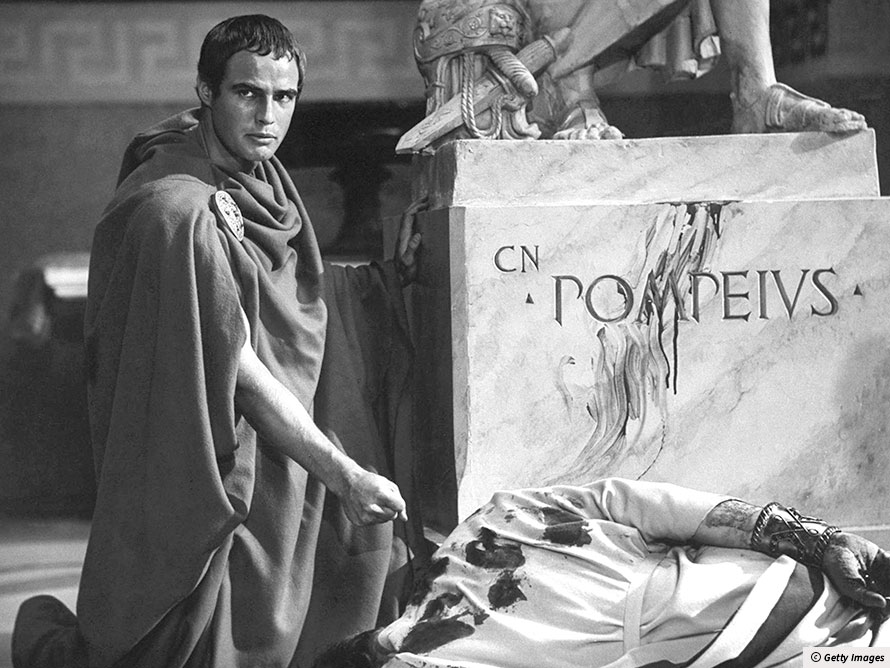A terror of tyranny, a plot to bring down an opportunistic would-be autocratA leader who rules by force and with absolute power, without the permission of others., merciless political backstabbing… as has become a hallmark of Shakespeare’s tragedies, Julius Caesar could have been written yesterday. And yet it is also an achingly personal tale of misguidedness, hubrisArrogance. In Greek tragedy, hubris is the key flaw that brings disaster to humans., despair and downfall. Written in 1599, this political thriller depicts an untimely assassination which sends Rome spinning into disastrous Civil War.
Julius Caesar

Glossary
Autocrat - A leader who rules by force and with absolute power, without the permission of others.
Hubris - Arrogance. In Greek tragedy, hubris is the key flaw that brings disaster to humans.
Tyranny - Cruel and aggressive use of power, often used to describe countries under the grip of a single oppressive leader.
Republic - A state in which the leaders are chosen by the people, and which has a president rather than a monarch.
Prerequisites - The things or circumstances that are needed for something to happen.
Catharsis - Originally used by the Ancient Greek philosopher Aristotle to explain the power of art to dispel strong negative emotions. The term is used in psychotherapy to describe how patients can overcome difficulties by expressing and facing their fears.
Plebeian - A commoner.
Pompous - Self-important and overly serious.
